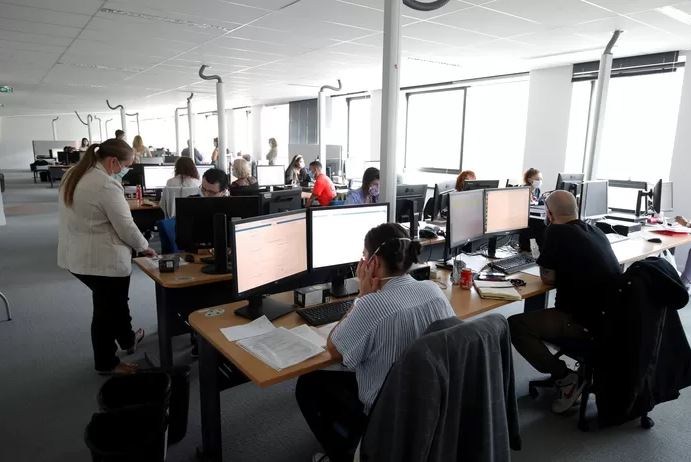An audit of the company that organised the Covid-19 contact tracing in Flanders over the past two years found €25 million in "deviating" invoices to the Government, according to a report seen by Het Laatste Nieuws.
At the end of November 2021, an investigation by the same newspaper showed possible fraud in the contact tracing system, as testimonies and internal documents revealed that the Mifratel call centre – a subsidiary of the Dutch company Yource – had been using fictitious contact tracers for months.
The Flemish Agency for Care and Health conducted its own investigation and also established that there were indications of fraud. The government immediately stopped working with the call centre and filed a criminal complaint.
At the time, Flemish Health Minister Wouter Beke ordered an audit "to find out if there could be fraud at other call centres as well.'' Three months later, the auditors have their report ready. In it, they came to some remarkable conclusions, according to reports in Het Laatste Nieuws.
'Deviating invoices'
The auditors examined a total of €130 million in invoices, €96 million of which were paid to the call centres between May 2020 and November 2021. The health insurance funds received €29.8 million and the consultancy firm KPMG €4.2 million.
The main part of those invoices – some €105 million – correspond to the registered hours of the contact tracers and consultants, the report concluded. However, this is not the case for nearly €25 million spent on call centres which remain unaccounted for.
Two tests conducted by the researchers show that each call centre invoiced thousands of hours for employees who made hardly any or no phone calls; a large portion of them was not even available for contact investigations.
Yet they appeared on the invoices to the government. Spread across the six call centres, this concerns 453 employees where it is unclear what exactly they were used for.
Explanations without proof
"This certainly does not mean that all those invoices were incorrect," Dirk Dewolf, administrator-general of the Agency for Care and Health, told Het Laatste Nieuws, adding that he thinks that the auditors have interpreted the term "deviating" broadly.
"For the majority of those invoices, the call centres were able to provide a conclusive explanation. For example, it was often about contact tracers that were considered spare capacity," he added.
But according to the audit report, there is still over half the amount (€15 million) that has yet to be explained with adequate proof. Many call centres argue that these discrepancies are difficult to verify and claim that there were calmer periods when fewer calls needed to be made.
Related News
- 'Better to start all over again': what's wrong with Flemish contact tracing?
- 560 new contact tracers wanted in Belgium
- Calls from contact tracers are not recorded, Walloon agency says
Operators also say that the outstanding costs went towards thousands of hours of workshops and training or to contact tracers who "monitored quality".
Auditors labelled these explanations as "statements without pertinent evidence," meaning that they cannot verify their validity. But they stopped short of calling the deviating invoices fraud. "Based on our results, we cannot conclude that no fraud was committed by the call centres, but neither can we say that fraud was committed."
'Could have been more alert'
Dewolf says this is an "annoying" conclusion for the Flemish Government, as the audit takes no clear stance. Still, the experts' uncertainty highlights the complications with detecting fraud.
While the audit fails to provide certainty about possible fraud, it does reveal that the government could have conducted more checks and controls.
"In retrospect, we could have been more alert," Dewolf said. "But the task we were given was to guarantee sufficient personnel capacity in a very short space of time. All energy went into building capacity... Financial controls came after those priorities."
A new reporting system implemented in November should ensure that no invoices "deviate" in the future, Dewolf said. The audit itself was not free either, as the Flemish Government paid Deloitte consultants €105,000 for it.

